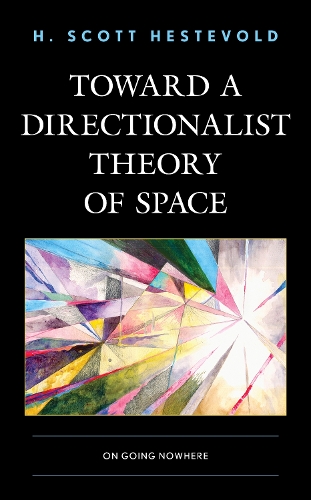
Toward a Directionalist Theory of Space: On Going Nowhere
(Hardback)
Available Formats
Publishing Details
Toward a Directionalist Theory of Space: On Going Nowhere
By (Author) H. Scott Hestevold
Bloomsbury Publishing PLC
Lexington Books
2nd July 2020
United States
Classifications
Professional and Scholarly
Non Fiction
Physics
115
Physical Properties
Hardback
220
Width 162mm, Height 240mm, Spine 20mm
485g
Description
In Toward a Directionalist Theory of Space: On Going Nowhere, H. Scott Hestevold formulates a new relationalist theory of space by appealing to the view that the universe is directioned and that there thereby exist spatial relations that Leibniz overlookeddirectional relations such that specific directional relations would obtain between any two objects. This directionalist/relationalist theory would allow the reduction of space-implying claims to claims about objects and the directional relations they exhibit, and it would also preserve absolutist intuitions that motivate standard arguments for substantivalist space:intuitions involving, for example, absolute motion and the possibility that all objects are moving uniformly.
Extending the directionalist/relationalist theory of space to the Special Composition Question, Hestevold addresses the problem of when discrete objects compose a whole. He also uses the directionalist/relationalist theory to formulate reductivist theories of boundaries and holestheories that may allow one to resist the view that boundaries and holes are ontologically parasitic entities. Finally, he explores directionalism/relationalism vis--vis spacetime, addressing questions such as whether the findings of modern physics provide adequate evidence that substantivalist spacetime exists; what problems underlie the dispute between spacetime substantivalists and relationalists; and in light of evidence for substantivalist spacetime, what ontological benefit follows from an endorsement of spacetime directional relations
Reviews
"Hestevolds book is a sophisticated, well-informed, and original treatment of thorny issues in analytic metaphysics. He grounds his discussion of space and directionality in the classic debate between Newton and Leibniz, but deftly takes it into the contemporary relativistic understanding of spacetime, with much to say about composition, persistence, continuity, and dependent particulars along the way. "
-- Steven D. Hales, Bloomsburg UniversityAuthor Bio
H. Scott Hestevold is professor emeritus of philosophy at The University of Alabama.
